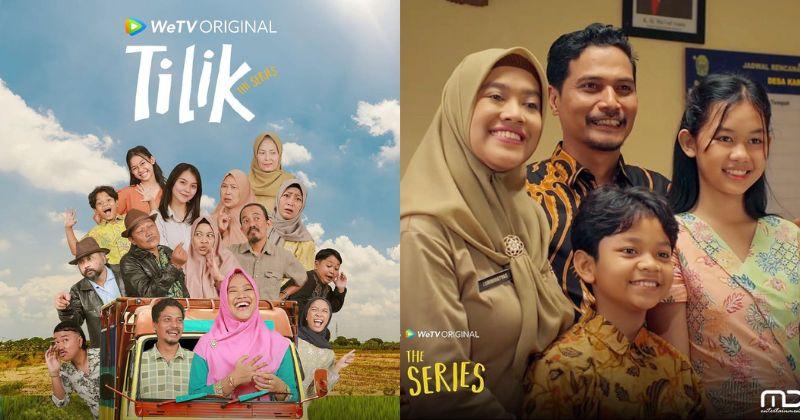
Masalah kesehatan mental di kalangan orang muda semakin memprihatinkan. Perasaan terisolasi dan kesepian, begitu juga kecemasan dan depresi, berkembang begitu cepat, dan yang paling memprihatinkan di kalangan anak dan remaja.
Data dari Pusat Pengendalian dan Pencegahan Penyakit (CDC) Amerika Serikat pada 2023 menunjukkan 60 persen remaja putri merasa selalu sedih dan putus asa di 2021. Masalah ini terjadi di AS dan kawasan Amerika Utara. Dalam sebuah penelitian oleh Murdoch Research Children’s Institute (MCRI) di Melbourne, Australia, 64 responden melaporkan pernah mengalami setidaknya tiga episode kecemasan dan depresi di masa remaja.
Pandemi COVID-19 juga berperan dalam memperparah kecemasan pada remaja, dilaporkan oleh Fox News Digital pada 18 Februari 2025. Namun penelitian di Melbourne, yang sempat mengalami pembatasan aktivitas ketat, mendapati pandemi hanya berkontribusi 25 persen pada laporan kecemasan dan depresi. Masalah sudah muncul sebelum pandemi dan kini semakin parah.
Keprihatinan pada Media Sosial
Bagaimana peran media sosial? Keprihatinan ini cukup tinggi di Australia sehingga akhirnya muncul aturan media sosial dilarang untuk yang berusia di bawah 16 tahun, namun para pakar sangsi aturan ini bakal berjalan.
"Aturan ini sulit diterapkan. Dan kita masih perlu lebih banyak bukti, meski sudah jelas fakta semakin sering bermain media sosial, semakin merasa kesepian dan kurang terkoneksi dengan orang lain. Kita butuh sistem untuk menunda orang-orang muda mengakses media sosial," jelas Dr. Susan M. Sawyer, pakar kesehatan anak dan remaja terkenal di Australia, kepada Fox News .
Sawyer menjelaskan kita perlu berfokus pada perkembangan keterampilan mandiri anak agar bisa berdiri sendiri tanpa ketergantungan pada ponsel. "Anak-anak kita perlu sesuatu yang lebih aman dari media sosial," tambahnya.
Penyebab Gangguan Mental Anak
Pada sebagian anak, stres bisa memicu masalah serius seperti depresi, kecemasan, melukai diri sendiri, atau gangguan makan. Menurut laman Children First , tak ada alasan pasti kenapa anak-anak bisa mengalami masalah gangguan mental . Namun beberapa hal, seperti pernah mengalami peristiwa traumatis, bisa menjadi penyebabnya.
Pengalaman traumatis pada anak bisa meliputi:
-Menderita sakit untuk waktu lama
-Pindah rumah dan/atau sekolah
-Korban perundungan
-Menyaksikan kekerasan dalam rumah tangga
-Korban kekerasan
-Orang tua bercerai
-Orang terdekat meninggal dunia.
Tanda Anak Alami Gangguan Mental
Data Riset kesehatan dasar (Riskesdas) 2018 menunjukkan lebih dari 19 juta penduduk berusia lebih dari 15 tahun mengalami gangguan mental emosional. Berikut tujuh tanda anak mungkin mengalami kesulitan dalam mengatasi kesehatan mental, dilansir dari Insider . Jika perlu, bawa anak berkosultasi ke psikolog atau psikiater.
Sulit berkonsentrasi
Hal ini bisa dilihat jika anak kesulitan berkonsentrasi saat mengerjakan tugas sekolah. Mereka mungkin berusaha fokus namun menunjukkan tanda-tanda tidak dapat mendengarkan atau menjalankan instruksi.
Perubahan perilaku atau pola normal
Orang tua sebaiknya menyadari sesuatu yang tidak biasa pada anak, misalnya amarah yang meningkat dan penolakan terhadap sesuatu. Perilaku lama anak muncul seperti mengompol atau mengamuk ketika sedang stres.
Insomnia dan pola tidur abnormal
Dr. Ajita Robinson, seorang terapis, mengidentifikasi kesulitan tidur, tidur terus, dan kurang tidur sebagai tanda bahaya kesehatan mental pada anak. Michelle Nietert, seorang penasihat profesional menambahkan jika anak tidak bisa tidur setiap malam, saatnya orang tua mengobatinya dengan pergi ke dokter.
Kebosanan bisa menjadi gejala depresi
Menurut para ahli, kebosanan bisa menjadi gejala depresi yang serius. Dalam tahap ini, anak butuh lebih banyak kegiatan.
Perubahan pola makan
Makan terlalu sedikit atau terlalu banyak bisa menjadi pertanda kesehatan mental anak . Healthline memberi beberapa saran untuk membantu mendorong anak-anak untuk makan, seperti membatasi gangguan waktu makan, menyajikan porsi yang tepat, menghilangkan stres waktu makan, mengurangi camilan, dan melibatkan anak-anak dalam persiapan makan.
Perilaku antisosial
Jika mereka biasanya sangat sosial, sekarang tidak ingin berbicara dengan teman-teman atau keluar dari kamar. Mereka mungkin tampak terganggu atau lebih tenang daripada biasanya atau agresif dan argumentatif.


















 2 Nama Anak Felicya Angelista dan Caesar Hito Beserta Arti & 30 Ide Rangkaiannya
2 Nama Anak Felicya Angelista dan Caesar Hito Beserta Arti & 30 Ide Rangkaiannya
 9 Nama Anak Artis Berwajah Bule Keturunan Sang Ibunda dan Artinya
9 Nama Anak Artis Berwajah Bule Keturunan Sang Ibunda dan Artinya
 Daftar Nama Anak Seleb yang Lahir Tahun 2025 dan Artinya, Bayi Perempuan Mahalini Curi Perhatian
Daftar Nama Anak Seleb yang Lahir Tahun 2025 dan Artinya, Bayi Perempuan Mahalini Curi Perhatian

